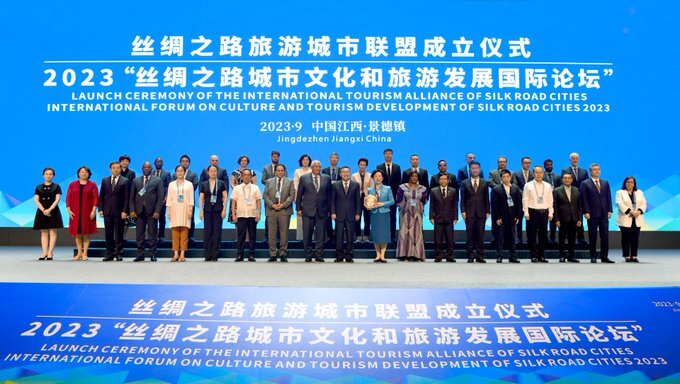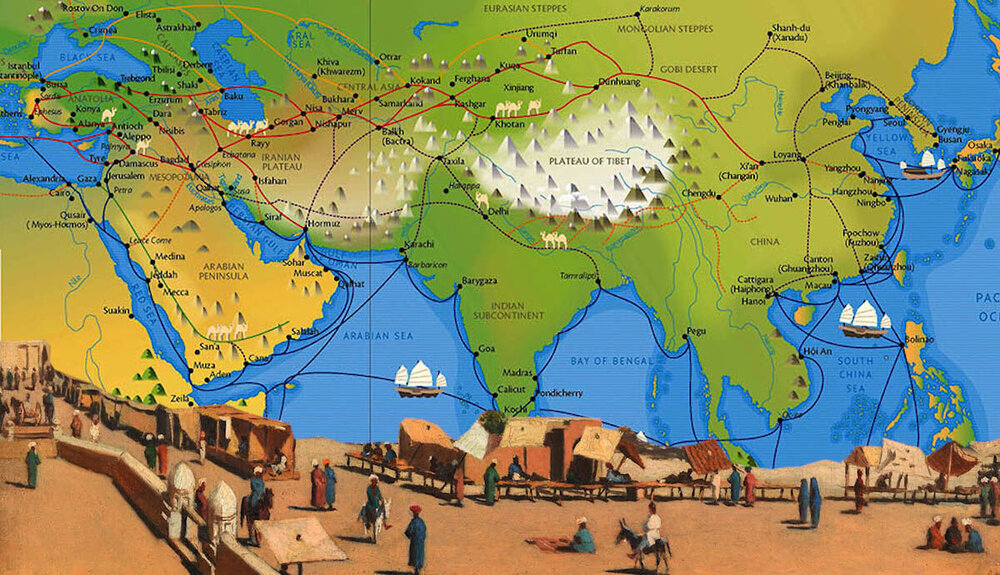Iran’s Semnan joins Intl. Tourism Alliance of Silk Road Cities

TEHRAN—Iran has become a founding member of the International Tourism Alliance of Silk Road Cities officially launched in China’s Jingdezhen on Friday as a tool to help broaden tourism cooperation.
The inauguration ceremony was attended by Iran’s deputy tourism minister Ali-Asghar Shalbafian, China-based diplomats, experts, and industry leaders from various countries.
Initiated by the Chinese government, the alliance involves 57 cities from 26 countries, and it is open to adding new members, Shalbafian said.
Iran has selected the ancient city of Semnan, which was one a hectic trading place on the Silk Road, to represent the country and its rich cultural heritage in the alliance, the official explained.
As mentioned by Shalbafian, Semnan has diverse capabilities in a wide range of sectors, such as tourism, history, culture, human resources, and infrastructure.
Having over 600 kilometers of common Silk Road routes is also one of the major criteria for selecting Semnan, the official noted.
“Further cooperation in the field of tourism both on land and sea, facilitation of local tourism and sustainable development, sharing experiences, and promotion of the Silk Road brand are among the objectives that this coalition follows,” the official explained.

According to organizers, the International Tourism Alliance of Silk Road Cities, jointly initiated by the Network of International Culturalink Entities (NICE), aims to carry forward the Silk Road spirit of “Peace and Cooperation, Openness and Inclusiveness, Mutual Learning and Mutual Benefit,” build a bridge for member cities to deepen friendly exchanges and practical cooperation in the field of tourism, and provide institutional guarantee for enhancing the synergy, efficiency, and sustainability of relevant cooperation.
Moreover, the alliance holds the “International Forum on Culture and Tourism Development of Silk Road Cities” in rotating presidency cities every year, carries out joint promotion activities on the culture and tourism themes of member cities for enterprises and citizens, and holds official visits, youth exchanges, professional training, study tours, theme routes, festival parties, famous cities’ selection and other activities within the framework of the alliance.
The ancient Silk Road has existed for thousands of years, passing through empires, kingdoms, reigns, and societies throughout history. At certain times in its long history, traders could travel freely along these routes, whereas at others, travel was difficult or dangerous.
There are over 40 countries today alongside the historic Land and Maritime Silk Road, all still bearing witness to the impact of these routes on their culture, traditions, and customs. Travelers along the Silk Road were fascinated not only by trade but also by the intellectual and cultural exchange that was taking place in cities along the route, many of which developed into hubs of culture and learning. Science, arts, and literature, as well as crafts and technologies, were thus shared and disseminated into societies along the lengths of these routes, and in this way, languages, religions, and cultures developed and influenced each other.
According to UNESCO, the Silk Road enriched the countries it passed through, transporting cultures, religions, languages, and of course material goods into societies across Europe, Asia, and Africa, and uniting them all with a common thread of cultural heritage and plural identities.
AFM
Leave a Comment